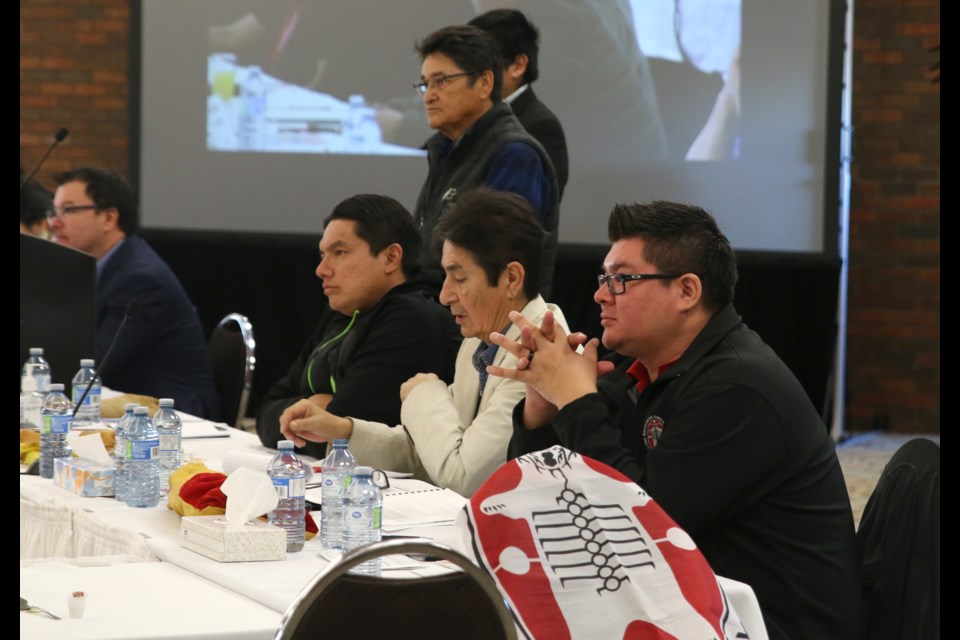THUNDER BAY – Ignace Gull, Chief of Attawapiskat First Nation, said cannabis will not be allowed in his community despite its recent legalization and he hopes other Nishnawbe Aski Nation leaders will consider taking a similar stance.
“We have enough problems, we have enough issues in our community we are trying to deal with and besides we don’t have the resources to be able to deal with cannabis coming into the community,” Gull said.
Legalized cannabis was on the agenda during day two of the NAN Chief’s Fall Assembly on Wednesday. Deputy Grand Chief, Jason Smallboy, said the 49 communities and the more than 50,000 members have differing views when it comes to cannabis, which became legal across Canada on Oct. 17.
“We have people who are 100 per cent for it and we have people who are 100 per cent against it,” he said. “What we’ve been doing is trying to educate people on some of the policy changes and the laws that are coming behind it and trying to work with communities to get them the most information as possible.”
Chiefs and councils from individual NAN communities will set their own rules or policies on cannabis and Smallboy said executive and council are doing what they can to provide the right information so members can make a decision that best suits the community.
“Each individual community I’m finding is making their own decision and the people coming to them and telling them they are for it because they want to get involved in some of the benefits that come with it like economic development and there are some that are saying they are completely against it because it is just another drug to be added on to the already bad prescription drug problem we have in our communities,” Smallboy said.
Some NAN communities are already dry, meaning they do not allow alcohol to be brought in, and Smallboy said similar bylaws or band council resolutions could be developed for cannabis. However, it is a complicated issue because under the Indian Act, communities are permitted to ban a substance but it only applies to liquid intoxicants.
“We are finding the local police services will be working with the communities to enforce it, so we are hoping that when a community passes a band council resolution saying they are going to prohibit it that people will follow it,” he said.
“One thing I am hearing across the board is to keep it out of the hands of kids,” Smallboy continued. “We are hearing it from the community members, the chief and council, the staff members, even on the government side. That is a major concern across the board.”
For Chief Gull, it is not just the young people he is worried about, but the community as a whole.
“It is going to impact the whole community in a negative way if we allow it to come in,” he said. “That’s a thing we are worried about because we can’t handle it. We can’t allow it if we can’t handle it.”
Attawapiskat is already a dry community and Gull said that while illicit drugs are still smuggled in, adding cannabis, even if it is legal, will only make things worse.
“We want to make sure that everybody is healthy, we want to make sure that all the children are healthy and have food on the table,” he said. “We don’t want people to spend their income to purchase something that is not going to help them.”
Gull hopes other communities will consider banning legalized cannabis. He said because of the remoteness of many NAN communities, it is difficult to regulate, which he believes is due to First Nations not being fully consulted on all the issues related to cannabis legalization.
“The government forgot to talk to the First Nations about how they can help if we need help,” he said. “There’s no funding available, there’s no resources available, and the policing system is not very effective right now in our communities.”
“We don’t support the cannabis coming into our community because it’s just another headache for us to worry about,” Gull added.
